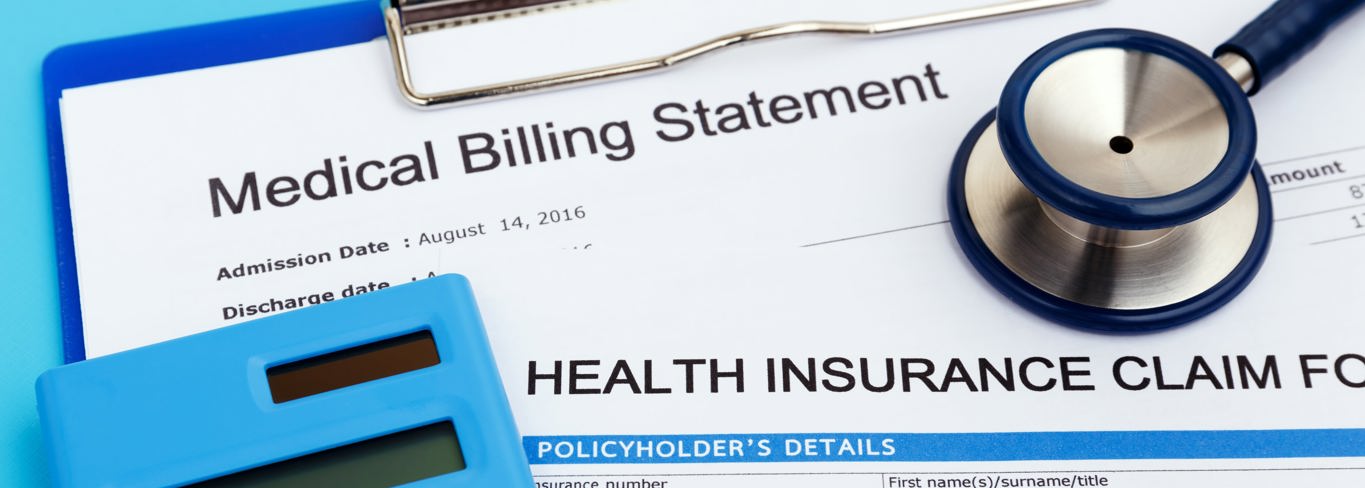What Are the Types of Health Insurance Claims in UAE: Direct Billing vs. Reimbursement Claims
 01 Mar, 2023
01 Mar, 2023
Explore the distinctions between cashless & reimbursement health insurance claims in the UAE. Understand the benefits and choose the right coverage for your needs.
Understanding the difference between Direct Billing and Reimbursement claims
Medical insurance is mandatory in the UAE. However, it is not just enough to have health insurance; you should also know what kind of claims or reimbursements are applicable. Medical insurance policies safeguard you from financial risks due to unexpected medical emergencies. It ensures a sense of security for families living in the UAE.
Quick Read Section
- In the UAE, medical insurance is mandatory, therefore it is essential to understand the procedure for making a claim.
- Medical claims fall into two categories: reimbursement claims and direct billing/cashless claims.
- Reimbursement claims mean that the insured must pay the bills at the time of treatment which will get reimbursed after processing of the submitted claim.
- Direct billing claims, on the other hand, offer a number of advantages, including fast processing, less paperwork, and no need for patients to pay healthcare providers.
Once you have chosen the right health insurance plan, you should understand the process of how to file a medical claim.
What are the types of health insurance claims?
Health insurance claims are mainly classified into two categories- reimbursement claims and cashless claims.
Direct billing or Cashless Claims: These are claims for which insurance providers themselves directly pay the hospital in place of the policyholder.
Reimbursement claims: These are claims for which payments made for the medical expenses incurred by the policyholder are reimbursed by the insurance company. In the case of reimbursement claims, the policyholder must pay for the medical expenses on their own at first and can claim the reimbursement later.
For Reimbursement Claims:
What is the step-by-step process for submitting a reimbursement claim?
When it comes to reimbursement claims, you need to pay the bills out of your own pocket at first. Submission of invoices and other medical documents is key to getting your claim approved and your expenses reimbursed.
These are the steps you need to follow in order to submit a reimbursement claim.
Step 1: Collect the necessary documents
After undergoing treatment at a non-network hospital, collect and keep the necessary documents ready. Reimbursement claims involve more documentation than direct billing claims, therefore ensure to have all your documents ready for submission. This includes bills and invoices for your medical prescriptions, medical procedures, lab reports, injections, medicines, therapy, feed etc and any other important information.
Check your bills to ensure it mentions the name of the patient, name of the doctor/physicians, name of the hospital, and their registration number etc. In addition to this, a medical prescription from your doctor stating the procedure or treatment undergone is also required for filing a reimbursement claim.
For more information on the documents required for filing a reimbursement claim, you can take help from your insurance broker. Your insurance company will have a list of required documents that an insurance broker can assist you with.
Step 2: Fill out the claim forms
The next step is to fill out the required forms provided by your insurance broker or company. Ensure to attach all the medical bills and invoices along with your form and get it signed by the insured or nominees.
You should also submit discharge papers issued by the hospital showing that you have cleared all the treatments. Then submit the collected documents and the claim form to your insurance company through an insurance broker or through their online portal.
Step 3:Contact your Insurance Broker
This is a necessary step, especially if you are unfamiliar with the process of submitting a health insurance claim. Your insurance broker/ company will guide you through the process and inform you of any deadlines specific to your insurance plan for submitting a reimbursement claim.
The general rule of thumb is that reimbursement claims need to be submitted within 30 to 120 days after completion of treatment or discharge (subject to insurance company terms & conditions). Make sure to have all the necessary information and documents before submitting a claim.
Step 4:Wait for Processing
The final step is to wait for the approval of the documents by the insurance broker or company and the processing of your reimbursement claim request. The insurance company will review the submitted documents to process your claim.
Your claim can get rejected if there are application errors or if you have not submitted the necessary documents. In case of a rejected claim, make sure to recheck your application and submit it well before the deadline is due. There might also be a co-payment required as per the medical insurance policy.
The settlement of your reimbursement claim can take up to 2-3 weeks (subject to insurance company terms & conditions). Ensure to have copies of the submitted documents with you as well. However, bear in mind that reimbursement claims do not mean that your treatment gets fully reimbursed. Insurance companies will reimburse 80 percent of the expenses incurred if it is covered under your health insurance plan. The remaining amount, generally 20 percent of the incurred expenses termed as co-pay in your insurance plan will not be reimbursed by the insurance company.
Step 5:Review and Follow-up
Carefully review the reimbursement statement to ensure accuracy. If you have any questions or discrepancies, contact your insurance broker for clarification.
Can reimbursement claims be submitted through any hospital?
Health insurance companies generally have tie-ups with hospitals and clinics which come under their network. However, reimbursement claims need not necessarily be applied for through a network hospital. They can be filed through any hospital where you have received medical treatment.
How long will it take to process my reimbursement claim?
Reimbursement claims are only processed after the completion of your treatment. Upon submission of the invoices and documents, the reimbursement claim can take two to four weeks to get approved.
For Direct Billing Claims:
What is the step-by-step process to avail direct billing facility?
When it comes to direct billing claims, there is hardly any out-of-pocket expense for the insured. However, take into account that not all treatments are covered by your insurance company.
These are the steps you need to follow in order to avail direct billing:
Step 1: Visit a Network Hospital
Choose to get your treatment done at any one of the network hospitals of your insurance company.
Step 2: Present Your Insurance Card
Show your health insurance card/ Emirates ID, through which the hospital can access your policy details. They will use this information to process the claim directly with the insurance company.
Step 3: Confirm Coverage and Receive Treatment
Check with your insurance broker whether the policy you have chosen, covers the required medical treatment and the specified hospital network. It's advisable to discuss this with your insurance broker before undergoing any non-emergency procedures.
There may be procedures and surgeries that are not fully covered by the insurance company for which you will have to pay. This is generally called a co-payment. Therefore, you need to first check with your insurance broker if the treatment will be covered under your existing insurance plan.
Step 4: Claim Processing
The healthcare provider will handle the claim processing with the insurance company directly. They will submit all necessary documents and bills on your behalf.
Once the claim is processed, you may receive a confirmation from your insurance company regarding the approved claim. Be sure to keep records for your reference.
With direct billing, there is usually no need for you to submit claims or seek reimbursement; the insurance company pays the provider directly.
Are direct billing/cashless claims completely free of cost?
Your expenses for direct billing or cashless claims will depend on whether or not your health insurance has a co-payment clause. In this case, even with a direct billing claim, you will have to pay the co-payment amount out of pocket. For example, if the co-payment is 10%, you will have to pay 10% at the time of discharge and the rest 90% will be direct billing. But if your insurance doesn't have a co-payment clause, you don't need to pay anything from your pocket during direct billing claims, as long as your hospital bill is less than your total sum insured.
If you are covered by a health insurance policy in UAE, there will come an opportunity when you must choose between direct billing or reimbursement claims. Reimbursement claims can be filed at any hospital, while a direct billing allows you to get medical treatment at a network hospital without paying out of your own pocket. It is important to know the difference between the two types of claims if you have a health insurance plan in UAE.
Contact us today for all your health insurance needs.


Elevate Your health Coverage to the Next Level!
Congratulations on taking the first step towards securing your health!
Now, imagine having even greater peace of mind with our Comprehensive Health Insurance plan.
Enjoy enhanced coverage, wider scope, and ultimate protection for you and your loved ones.

 Buy Now
Buy Now Online Plans
Online Plans



